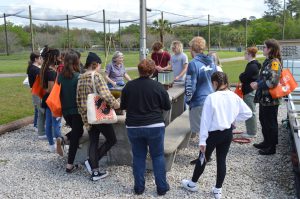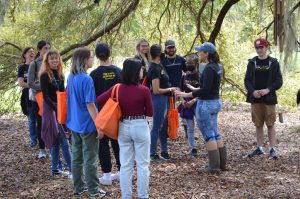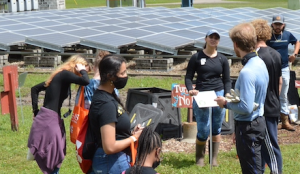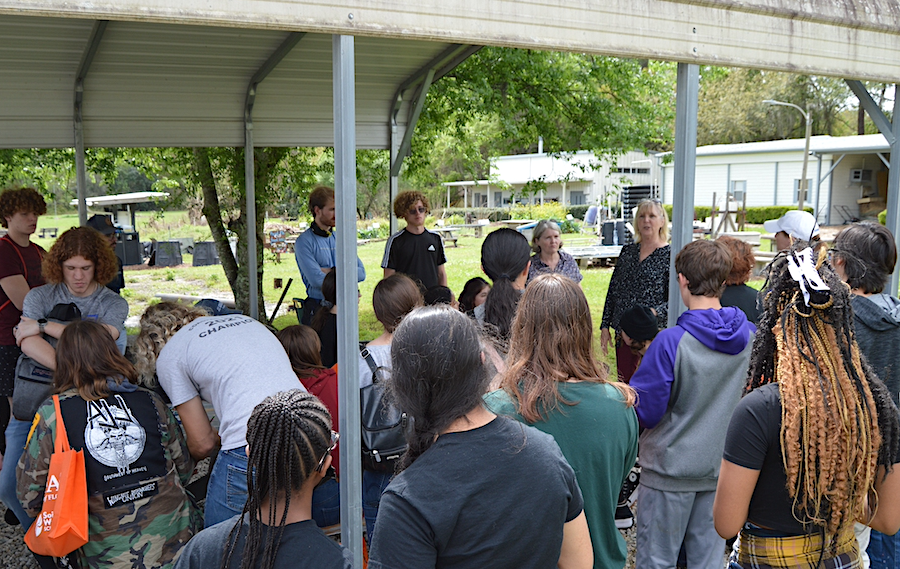Dr. Ann Wilkie, a research professor in the UF/IFAS soil and water sciences department, frequently welcomes groups to her Bioenergy and Sustainable Technology (BEST) Lab. Eager to share the work she and her students do at the lab, Wilkie also educates her visitors on reducing their carbon footprint and being sustainable in their day-to-day lives. Her most recent guests were nearly three dozen students from Columbia High School in Lake City, Florida, and their teachers.

“This group of Advanced Placement Biology, Advanced Placement Environmental Science, and Science Club students is already aware of current problems facing all of us,” Wilkie said. “Still, we were able to discuss things in finer detail, including microalgae cultivation as an energy source and producing energy with small-scale biodigesters.”
They also talked about composting to divert food waste from going into the landfill, harvesting rainwater to reduce withdrawals from the aquifer, and growing your own food to cut down on transportation costs from farm to table.
“There are small things everyone can do to have an impact – a considerable impact over time,” Wilkie explained. “I hope these students are thinking about that more and sharing that idea with their family and friends.”

BEST Lab students Lars Bjorndal (research assistant), Laura Valletti (university scholar), and Tyler Thompson (undergraduate intern) helped lead tours. They also answered the high school students’ questions. Wilkie collected comment cards from the students before they left. Below is a sample of what they learned.
Students’ Thoughts
“I did not realize just how many different types of algae there are. I also did not realize that algae can be used for medicinal purposes.”
“When exposed to sunlight, algae will go through photosynthesis and release oxygen and produce sugar. The oxygen allows algae to rise because of the bubbles it produces.”
“Compost is quite efficient to use when planting, but it seems that the amount of waste that you start with is way more than the amount you end with. This means that a lot of the waste used in the composting process decomposes.”

“I learned more about the process of composting in a more hands-on experience.”
“I would absolutely adore being a participant in this program in the future. It’s truly amazing to see all the innovative work surrounding renewable energy.”
“I really enjoyed learning about your composting system since I have a garden at home. I think having my own compost system will be beneficial.”

 2
2
